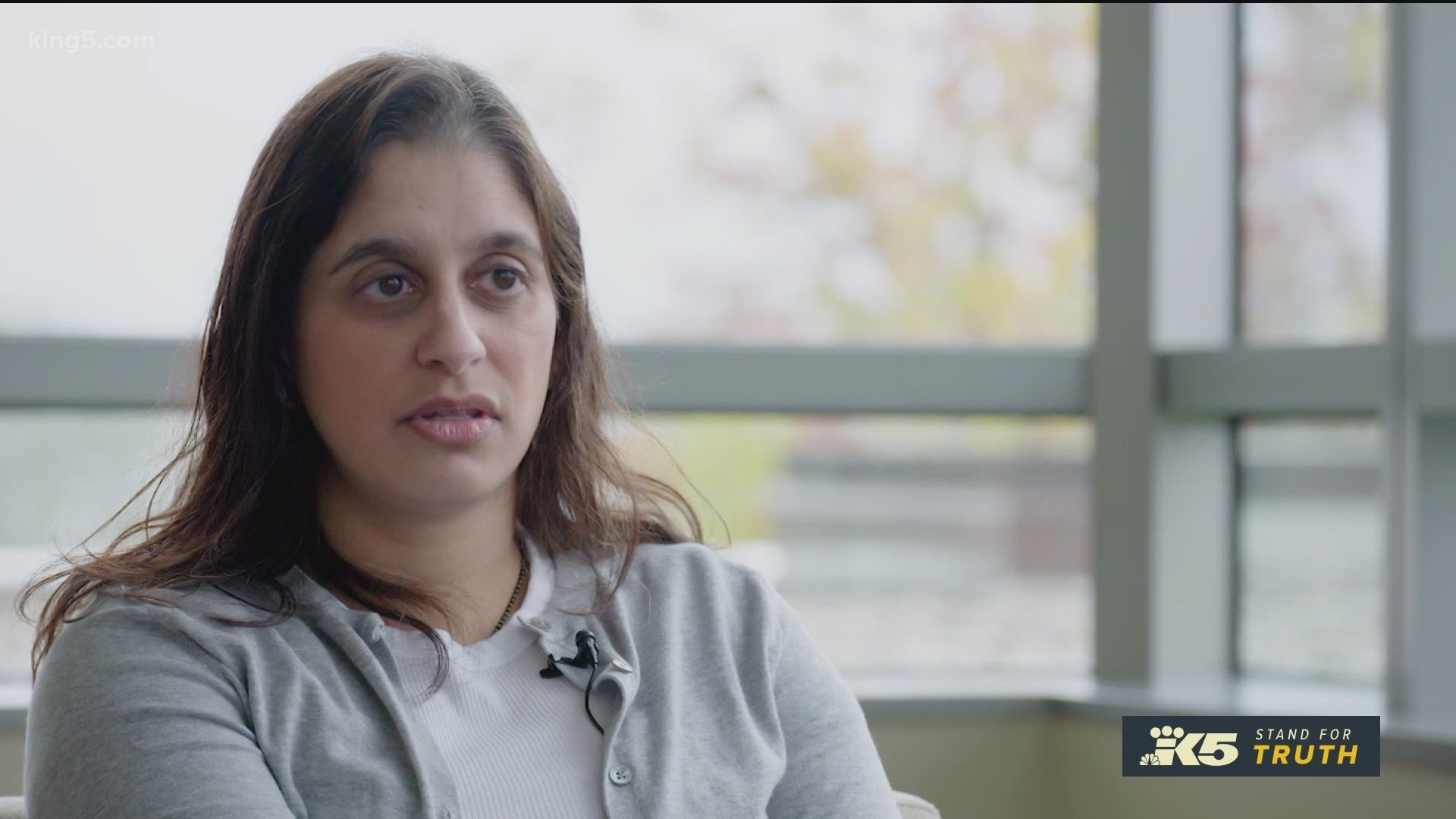BELLEVUE, Wash. — Can you rewire your brain to be antiracist? A Bellevue psychiatrist thinks so.
Although babies early on learn to identify race, Dr. Neeru Bakshi said racism isn’t something humans are born with; it’s something that’s taught, and it changes the neural pathways in your brain.
This can be reinforced by spending time with people who think and behave like we do, causing us to get entrenched in “group think.” Bakshi said the brain will follow our lead in what we expose it to and prune away unused connections that cause inefficiency.
“Our brain is this wonderful organ, but it's incredibly lazy in that it wants to do things efficiently,” Bakshi said. “So it's not going to make the change unless it knows that that's the change that needs to be solidified.”
However, the good news is we can train our brain to undo those negative pathways.
“The ways to overcome or to combat racism are to then do that same thing but do it in a different way and create different neural pathways and different modes of behavior to become an antiracist,” Bakshi said.
WATCH: Full episodes of Facing Race
One of the ways to create different neural pathways is to expose yourself to people who are different from you. When we actively seek out connections with people who have a different cultural background or speak a different language, Bakshi said that allows the brain to grow. This happens through nerve cell growth as the brain creates new neural pathways to think about something in a new way.
“If we choose to expose ourselves to racist information, then that will get reinforced in our brains,” Bakshi said. “But if we choose to expose ourselves in the opposite direction, to things that are antiracist and that include other people and increase our diversity of thought, then that's really going to move us in that direction.”
This type of transformation can happen at any age, but Bakshi said it takes consistent exposure and true motivation to build a new pathway. A one-time experience isn’t going to do it.
“I think about that motivation and that desire to change and inclusivity of people of diverse backgrounds,” Bakshi said. “If that's something that we're motivated to do, then it is something that we are going to grow and change into and then have that empathy and compassion for people who are not similar to ourselves.”
This story was produced as part of “Facing Race,” a KING 5 series that examines racism, social justice and racial inequality in the Pacific Northwest. Tune in to KING 5 on Sundays at 9:30 p.m. to watch live and catch up on our coverage here.

